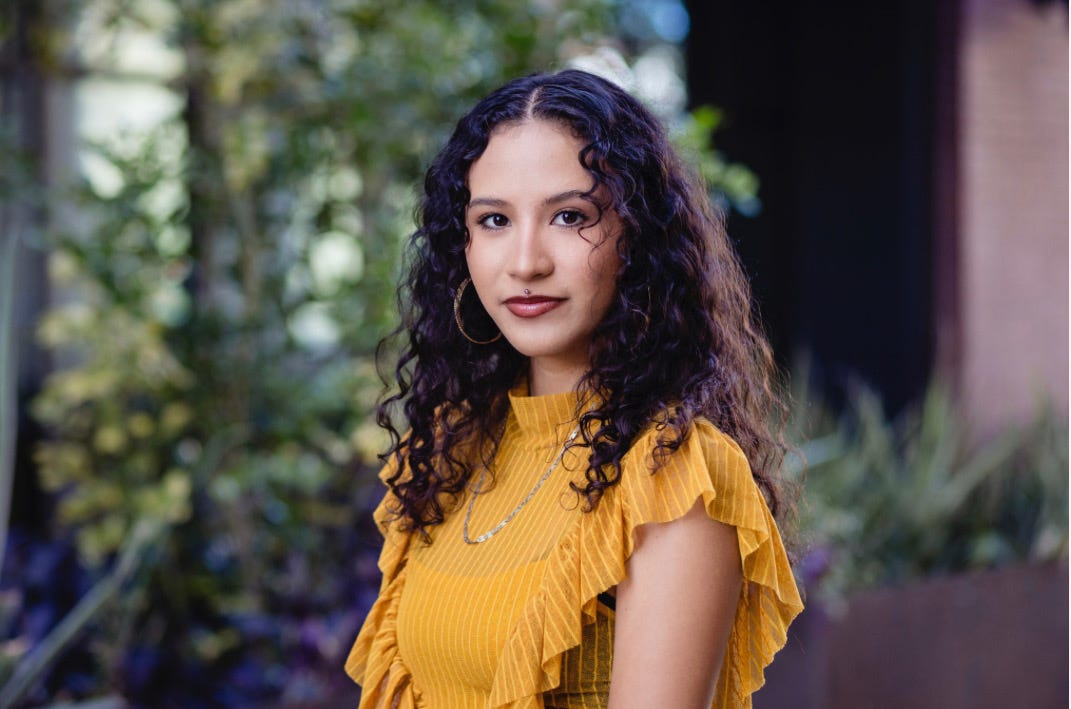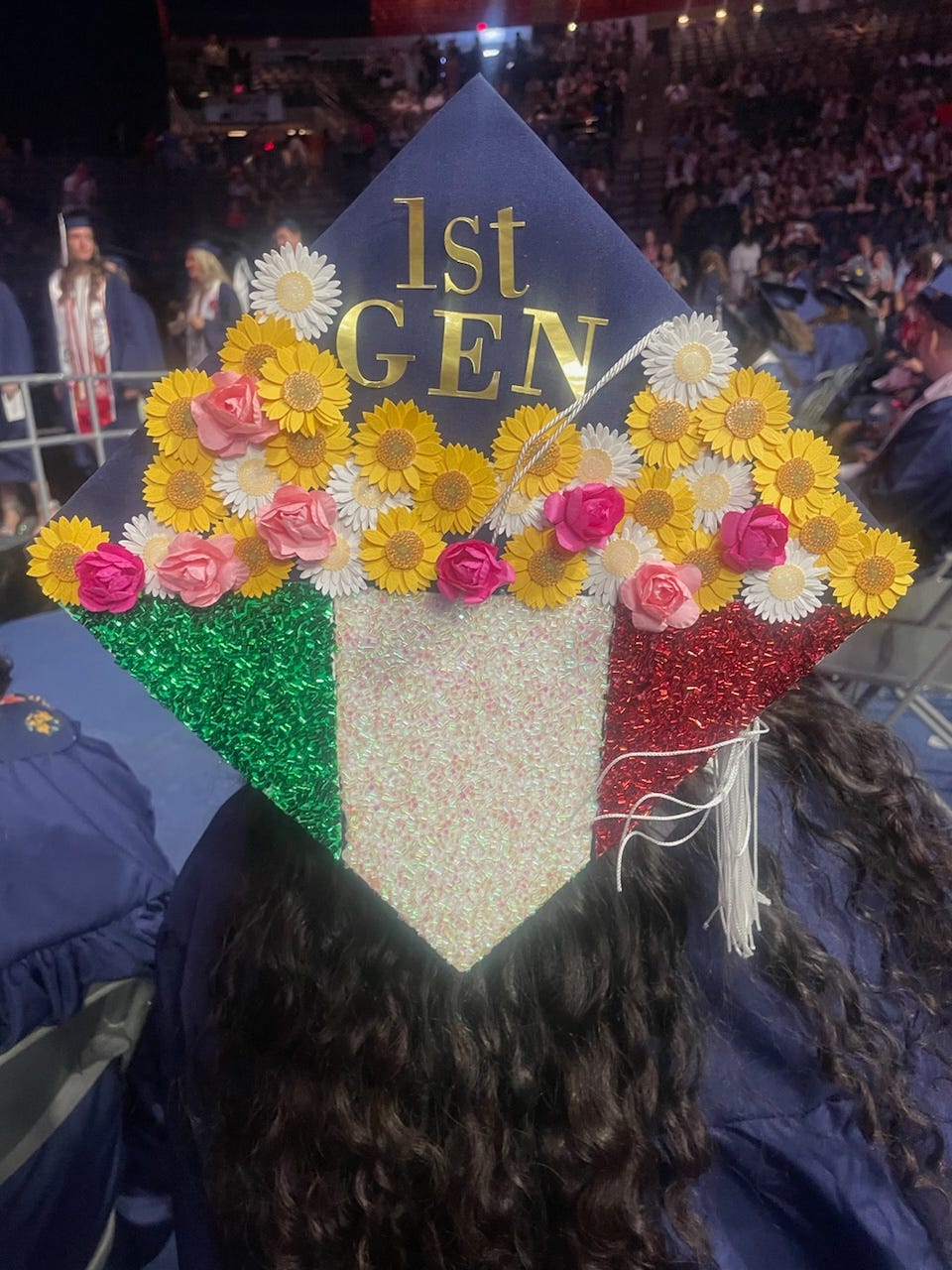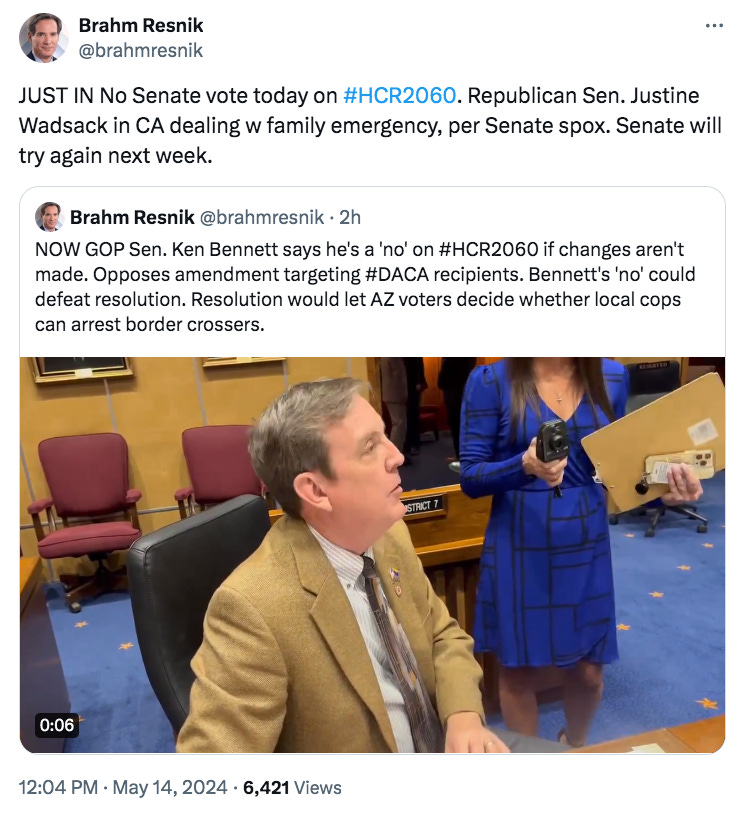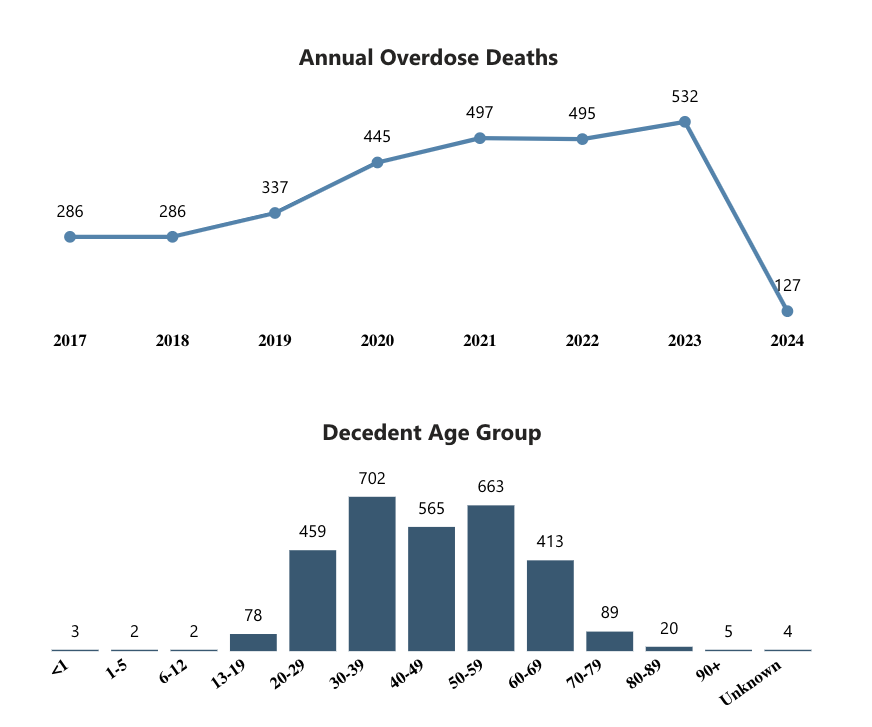Say hello to the Agenda’s new reporter
Susan Barnett is ready to bring forgotten voices into the conversation … She'll cover local elections, and keep her eye on Tucson's history … Water deals on their way.
Tucson has this thing with marginalized communities.
It has a history where the most vulnerable communities were left out of important conversations. Where then these communities had to deal with displacement, with the loss of their history, their culture and their ancestral land.
The most obvious example was the land the Tucson Convention Center is on, which previously housed a large Mexican, Chinese and African American community until they were displaced in the 1960’s urban renewal.
Their views haven't always been represented and their concerns haven’t always been addressed.
The Mexican-American community, and the Latino community in Tucson, still face some of the same obstacles our ancestors did when it comes to having a voice in what is going on in the community.
Across all levels of the Mexican community, in immigrant families like mine, and for the third- or fourth-generation Mexican-Americans, lack of information has long been one of the biggest barriers we face.
Decisions that are made in a city council meeting on any given Tuesday night are decisions that impact the lives of real people. Decisions about affordable housing, public services, education, crime, the environment and so many other issues.
I’ve seen in my own life how news can be a source of empowerment for my community, like during SB1070 in 2010. At only 10 years old, I knew that the radio and TV my parents watched to inform themselves on our daily realities were vital to our survival as a family.
I grew up in the Flowing Wells neighborhood and graduated from Flowing Wells High School in 2018. I was raised in an immigrant community where information was often shared by word of mouth with no centralized place to voice our concerns.
When my dad was deported in 2016, I also saw the lack of information for our own communities. I was stuck reading about the “national immigration crisis,” with little to no information about what was happening in my own community.
My dad was a construction worker who prided himself on his contribution to Tucson, oftentimes pointing to different spots in town he had helped build as a mason, like Pima West and the nice homes that line Tucson’s west mountains.
My mom was a housewife-turned-house cleaner who, after a full day of cleaning houses, spent countless hours cleaning up healthcare centers and schools around town to make ends meet after my father was deported.
Despite the barriers they faced (language barriers, lack of accessible information and no generational wealth to fall back on), they sacrificed everything for me to be afforded this opportunity to be where I am.
Because of those reasons and more, I am excited to be joining the Tucson Agenda’s team of reporters where I will report bilingually on the upcoming local elections within the Latino community from South Tucson to Pima County and beyond.
I previously worked at the Arizona Daily Star shortly before transferring to La Estrella de Tucson, the Star’s Spanish-sister newspaper. Under my editor Liliana López Ruelas, I focused on ways to inform and engage the Latino community in both Spanish and English.
Three Latinas made up the mighty Estrella team until we were all laid off suddenly last year, further cementing the fact that Tucson is becoming a news desert. This loss will disproportionately affect marginalized communities.
Liliana and I decided to go back to school and we are on track to graduate next spring with our masters in Bilingual Journalism. My research in my masters program focuses on the history of Spanish language media, particularly Mexican media, in Tucson.
Through a series of interviews, I hope to create a documentary on the contemporary history of print, radio and broadcast journalism in the Mexican community: how it started, its importance and where journalism in the Spanish community is headed now.
My goal at the Tucson Agenda is to report on the issues that matter to the Latino community in Tucson, with a particular focus on South Tucson, where 84% of residents are Hispanic. I will not only listen to the voices of the community, but amplify and bring them into the local conversation.
More than that, I will get to the root of the issue with data and information, and try to contextualize the topics I report on to best inform readers on the bigger picture.
More coverage of local politics means more transparency and it opens a dialogue between city representatives and the people they are representing. Reporting in Spanish and English means more accessibility for the people who have often been left out of news reporting.
Susan is going to add a whole new dimension to the Tucson Agenda. If you haven’t already, upgrade to a paid subscription so we can keep expanding our team!
Community outreach is also an important part of what I’ll be doing. The best way to listen to the community is to be in the spaces where they are speaking; not only do I want to listen, I want to make sure my coverage is accessible to who I am listening to (stay tuned on ways we will do that).
This reporting is particularly important with the upcoming national, state and local elections. While the national conversation usually overshadows local politics, the local elections are the ones that have the most direct impact on residents and are equally, if not more, important to cover.
I will use my position to amplify voices and inform communities, and hopefully be a part of the revival of bilingual news-forward reporting on local politics.
Please reach out to me if you have any tips, or would like to chat about issues that concern you. You can reach me at susan@tucsonagenda.com, follow me on Instagram @susanitalareportera or on X @susan_a_barnett.
If I’m not at school or work, you can find me building community in the roller skate scene. I teach weekly roller dance classes, host free community-building events and use my social media to organize with skaters all over Tucson to grow the skate community.
Susan’s work with the Tucson Agenda is supported by the Local News Initiative of Southern Arizona, a fund of the Community Foundation for Southern Arizona.
Share this post to spread the word about the Agenda’s new reporter.
Water deal: The Tucson City Council is set to approve water-sharing agreements with Scottsdale, Peoria, and Gilbert at the council’s May 21 meeting, KOLD’s Bud Foster reports. The three cities don’t have anywhere to store water, so they’re going to store it in the reservoir underneath Avra Valley, where Tucson has been storing water for years.
Just a tad late: Pima County Supervisor Matt Heinz filed his campaign finance report 100 days after it was due, Green Valley News’ Dan Shearer reports. In theory, Heinz should pay $2,275 in fines, but candidates rarely have to actually pay those fines. Shearer wrote about Heinz’s tardiness six weeks ago. At the time, Heinz said he would look into it and “correct the situation as soon as possible,” but that turned out to be quite a while. Heinz raised $600 as of Dec. 31, with $500 of it coming from lobbyist Michael Racy.
Southbound buses: While the Mexican government calls for a humanitarian approach to migration, they also are busing thousands of migrants from towns near the U.S.-Mexico into the far southern reaches of Mexico, the New York Times’ Simon Romero and Paulina Villegas report. Officials rarely acknowledge the bus trips, which started almost immediately after emergency talks in December with U.S. Secretary of State Antony Blinken, who wanted Mexico to do more to slow migration into the United States.
Northbound screening: The Biden administration is pushing for asylum officers to screen asylum seekers for certain crimes or national security threats at the U.S. - Mexico border, Alisa Reznik of KJZZ’s Fronteras Desk reports. An attorney with the Florence Immigrant and Refugee Rights Project says those screenings are complex and already take place elsewhere in the immigration system. Asking busy asylum officers to do them could lead to people with valid asylum claims getting deported.
Not a good record to set: Last year set a record for drug overdose deaths in Pima County, KGUN’s Eddie Celaya reports. The county medical examiner reported more than 500 deaths in 2023, including about 300 that involved fentanyl. Health officials noted a surge in overdose deaths among people over 60 years old, which in many cases were linked to cardiovascular disease, diabetes, and obesity.
Breaking asphalt: The long-awaited Grant Road widening project starts next week and is expected to wrap up in 2026, Arizona Public Media’s Hannah Cree reports. Lanes will be closed from 8 p.m. to 6 a.m. Sunday through Thursday as crews work on the project, which starts with relocating undergound utility lines.
4,200: The number of University of Arizona students, faculty, staff, and community members who responded to a survey about the qualities and characteristics they want in the next UA president, the Arizona Board of Regents said in a news release. They’re still accepting comments at: UArizonaPresidentialSearch@azregents.edu










Welcome, Susan. You clearly bring a lot of talent and commitment to your new position. Love your mortarboard!
Congratulations Tucson Agenda on gaining an additional reporter. Grants can be good and you are to be commended for doing all that was necessary to obtain this grant. Way to go!